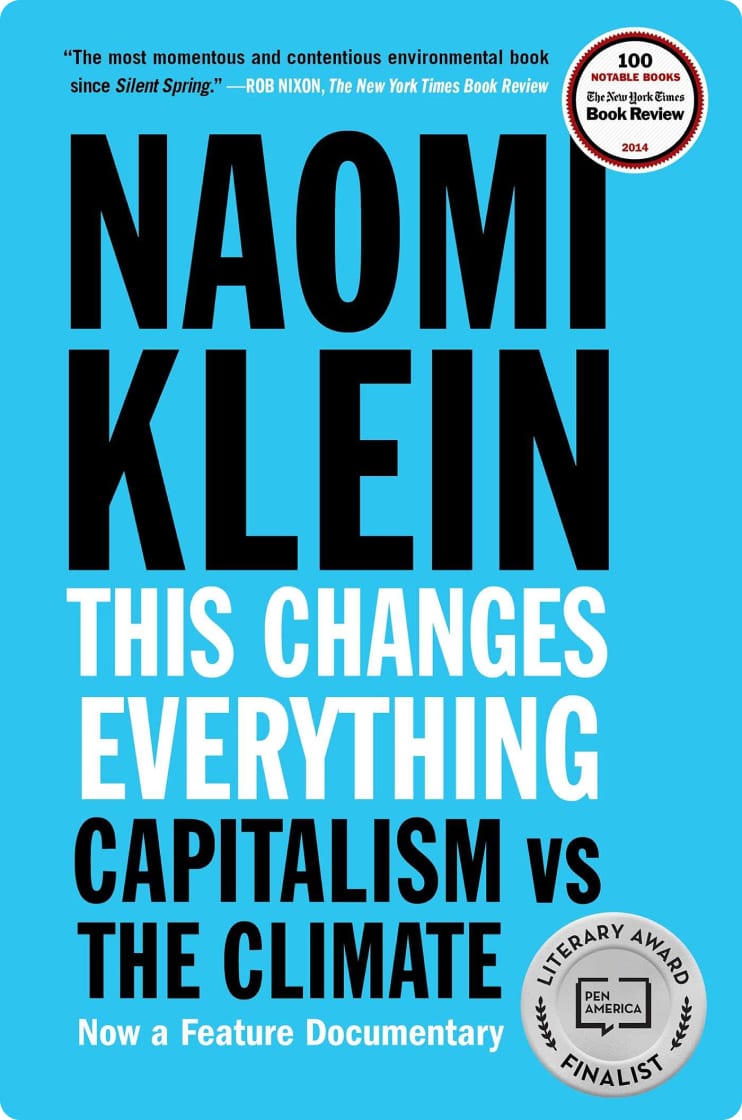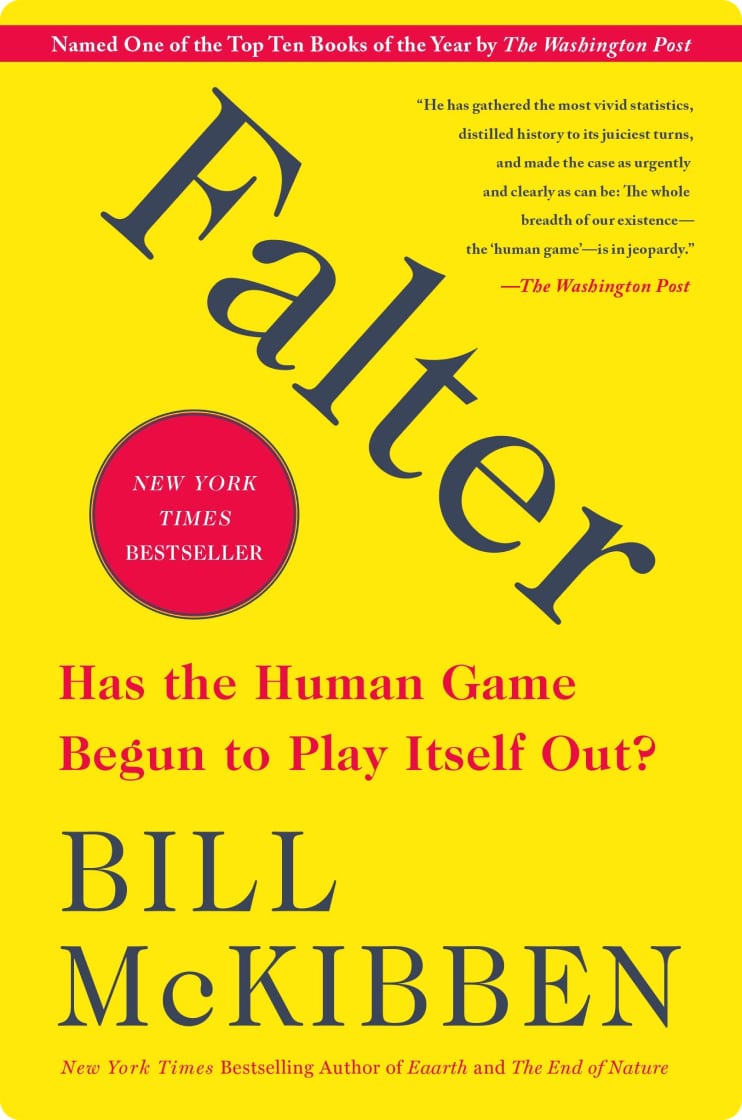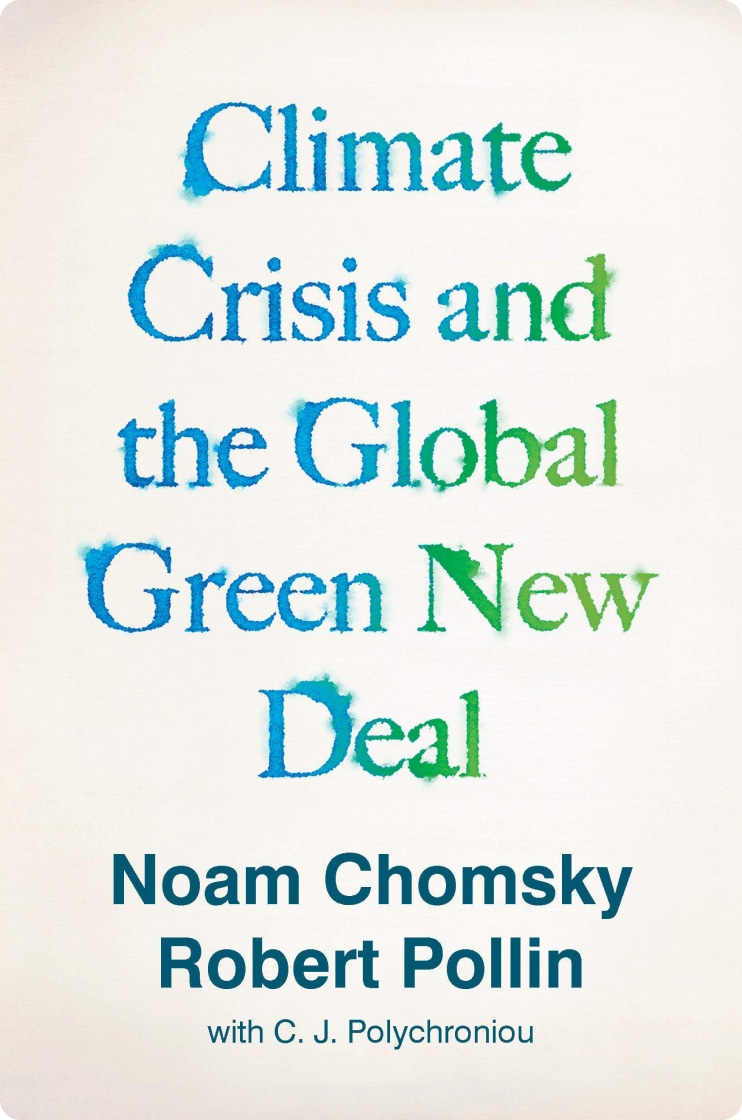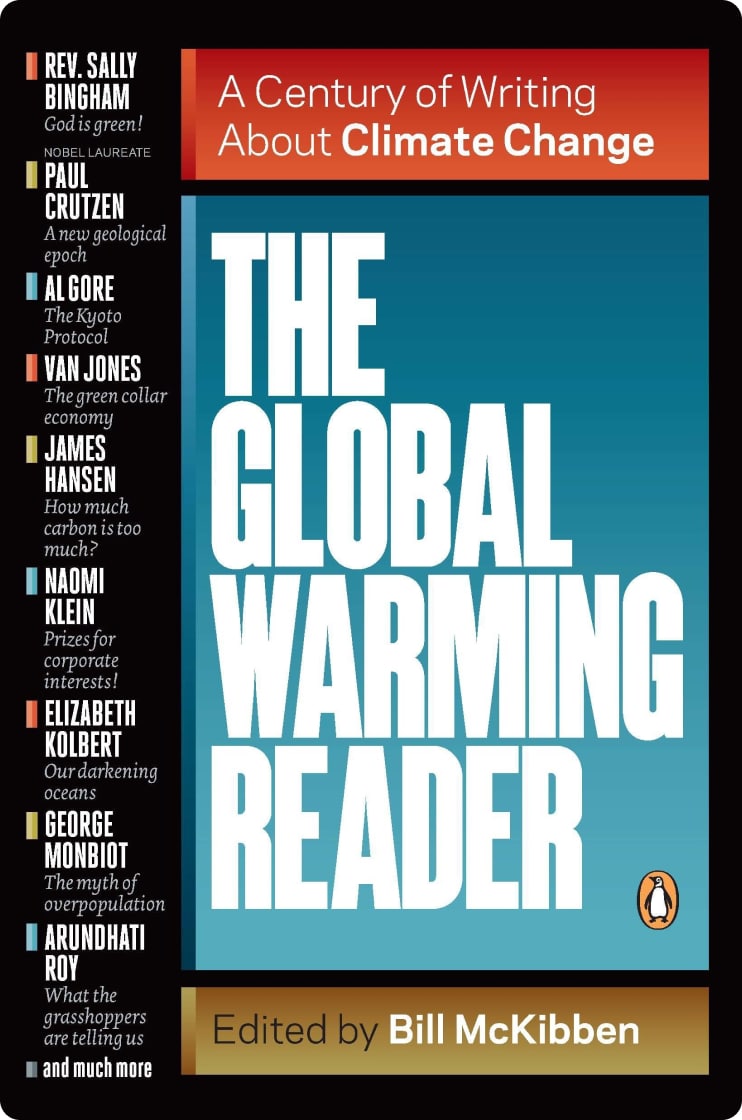On Global Heating, Capitalism, Insurance, And Social Friction
I have a neighbor who likes to mock me for driving an electric car. “You are lucky to have fossil fuels to make the electricity you need to charge your Tesla,” he says. Suffice to say, his world view and mine are diametrically opposed to each other. Bill McKibben is another who would find my neighbor’s attitude hard to understand.
There are large segments of society who do not yet comprehend the enormity of the changes that a warming planet will bring about. They think they can just keep on keeping on as they always have. Yeah, there may be a few more hot days than before, but that’s why God gave us air conditioning, right? Bump the thermostat a degree or two and everything will be fine.
Bill McKibben And The Insurance Industry
In his latest Substack post, Bill McKibben delves into the insurance crisis brought on by a warmer climate. He argues that insurance is the lubricant that makes commerce possible. Losing insurance creates friction in the economic system and he warns that friction can lead to a collapse of important parts of local, national, and global economies.
McKibben is not a voice crying in the wilderness. Just last week, the Wall Street Journal published an article with the title, “Buying Home and Auto Insurance Is Becoming Impossible.” Here are the first few paragraphs:
After Allstate suffered billions of dollars in losses and failed to get the rate increases it wanted, it resorted to the nuclear option. The insurance giant threatened last fall to stop renewing auto insurance for customers in three states that hadn’t given in to its demands, which would have left those policyholders scrambling for coverage. The states blinked.
In December, New Jersey approved auto rate increases for Allstate averaging 17%, and New York, a 15% hike. Regulators in California are allowing Allstate to boost auto rates by 30%, but still haven’t decided on its request for a 40% increase in home insurance rates after the insurer refused to write new policies. For many Americans, getting insurance for both their cars and homes has gone from a routine, generally manageable expense to a do-or-die ordeal that can strain household budgets.
Insurers are coming off some of their worst years in history. Catastrophic damage from storms and wildfires is one big reason. The past decade of global natural catastrophes has been the costliest ever. Warmer temperatures have made storms worse and contributed to droughts that have elevated wildfire risk. Too many new homes were built in areas at risk of fire. As losses mounted, inflation only made matters worse, boosting the cost of repairing or replacing cars or homes.
McKibben On The Actuarial Model
Bill McKibben says. “Insurance sounds like a boring topic, until you think about it a little. It’s the (enormous) part of the economy that’s assigned to understand risk. And to do so it developed one of the most powerful technologies in all of human history — the actuarial table. Using it, the industry can predict what’s going to happen — predict it accurately enough to allow everyone else to affordably hedge against that risk.
“Without that hedge, investment — in a house or a company — becomes almost impossible. Climate change is wrecking that tool, because an actuarial table depends for its power on the world behaving more or less as it has in the past. As the Wall Street Journal put it, ‘Climate change has made it harder for insurers to measure their risks, pushing some to demand even higher premiums to cushion against future losses.’ ”
Once the ability to predict future losses disappears, the insurance industry collapses because it has no way of knowing how to price risk accurately. That causes friction in the world of commerce. If that friction gets strong enough, the system collapses.
It’s already happening. Recently, Forrester Research predicted, “Climate change will destabilize the global insurance industry.” Increasingly extreme weather will make it harder for insurance companies to model and predict exposures, accurately calculate reserves, offer coverage and pay claims, the report said. As a result, it said, “more insurers will leave markets besides the high stakes states like California, Florida, and Louisiana.”
Allstate CEO Tom Wilson has said,“There will be insurance deserts.” Insurance deserts, where private sector companies will no longer will sell regular home insurance policies, are already developing in high risk areas. Citizens, which is Florida’s insurer of last resort, is now the main provider of home coverage in that state.
Yet Citizens has a barb in the tail of its insurance policies which makes all Citizens policy holders co-insurers for each other. If Citizens suffers a catastrophic loss in one part of the state, it can force policy holders in other parts of the state to pony up extra money to offset that loss. Perhaps this form of socialized insurance is a sensible way to address an insurance crisis that effects an entire state, but the odds are that not one in ten Citizens customers knows or understands that provision in their policy.
Swiss Re Predictions From 2005
In 2005, Swiss Re, one of the world’s biggest reinsurance firms, hired a team from Harvard to model the effects of increased warming of the planet. It found that as storms and other disruptions become more frequent, they “overwhelm the adaptive capacities of even developed nations. Large areas and sectors become uninsurable. Major investments collapse and markets crash.”
“Abbreviated return times of extreme events” is a bland enough phrase, Bill McKibben says. It’s rather innocuous, sort of like “objects in mirror may be closer than they appear,” but it is a pretty good caption for our moment. Where he lives in Vermont — which some consider a “climate refuge” — the state is dealing with floods and storms at a rapidly increasing rate. Last year, a spokesperson for Green Mountain Power said, “Our three worst storms were last year.”
In effect, parts of developed countries would experience developing nations conditions for prolonged periods as a result of natural catastrophes and increasing vulnerability due to the increasing frequency of extreme events, McKibben writes. Check that italicized language once more. If that doesn’t send a shiver down your spine, nothing will. “Homeowners unable to get affordable insurance is a problem in and of itself, but what it really presages is what the Harvard team described — a drag on the economy that eventually causes real change.” There’s your friction right there in a nutshell.
No Tears For The Insurance Industry
Bill McKibben says there is no reason to weep for insurance companies. Over the past several decades, they have been one of the principal sources of financing for the fossil fuel industry — the same industry that has pumped billions and billions of tons of carbon dioxide and methane into the atmosphere, leading directly to the very climate changes that are now making large swaths of the world uninsurable.
Not only do they figure out how to charge higher premiums, he says, they have helped create this crisis. “With the biggest pool of investment capital on the planet, they’ve continually helped fund the expansion of fossil fuels, and these same companies continue to underwrite the pipeline projects and LNG export terminals that are doing them in.”
It’s just business, the companies say. Allstate’s Wilson blithely said recently, “We can’t afford to use shareholder money…to support an underpriced product.” Attitudes like that led McKibben to resurrect a quote attributed to Vladimir Ilyich Lenin, “When it comes time to hang the capitalists, they will vie with each other for the rope contract.”
The Unkindest Cut
McKibben suggests we should not weep for ourselves either. After all, insurance is a luxury available mainly to people in those places that have driven the climate crisis. Most of the world has been dealing with it without any help, a fact we were reminded of this week when a UN report delivered the news that — the vast majority in poor countries are currently dealing with drought. “Droughts operate in silence, often going unnoticed and failing to provoke an immediate public and political response,” wrote Ibrahim Thiaw, head of the United Nations agency that issued the estimates wrote in his foreword to the report.
The many droughts around the world come at a time of record high global temperatures and rising food price inflation, as the Russian invasion of Ukraine, involving two countries that are major producers of wheat, has thrown global food supply chains into turmoil, punishing the world’s poorest people.
“The enormous momentum of the global economy is beginning to run into the enormous friction of climate change. If we were all working with good faith to build systems that could absorb the shock, we’d have a chance. But at the moment the fossil fuel industry is pushing the pedal to the floor. Its response to the hottest year in the last 125,000 years, the industry has rolled out an eight figure ad campaign launched last week promoting the idea that fossil fuels are ‘vital’ to global energy security,” McKibben reports.
The Takeaway
In the final analysis, it doesn’t amount to a pisshole in the snow whether Tesla cracks the robotaxi conundrum or AI supplants the human brain. What matters is that we are poisoning our environment with the waste products of fossil fuels and refuse to recognize the damage we are doing to our home. My neighbor who celebrates fossil fuels is living on a barrier island in Florida that is under threat from burning fossil fuels, yet he refuses to see how untenable his position is.
He is not alone. The enormity of the climate conundrum just hasn’t sunk in yet and by the time it does, it may well be too late to do anything about it. When that happens, how many will cry, “If only I had known!” The insurance industry has known for at least two decades but continues to plow forward into a dismal future focused only on shareholder value, as if there is no value to a sustainable planet. If those giant corporations can’t adjust their behavior to deal with a known threat, how are ordinary people supposed to do so?










